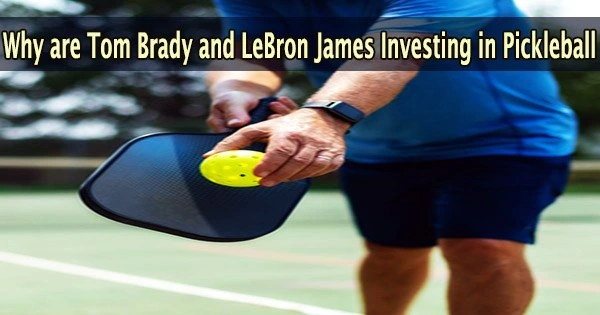Pickleball is the fastest-growing sport in America, with over 4.8 million people playing the game. Its quick expansion has, however, resulted in significant growing pains, including administering hundreds of tournaments, managing competing professional leagues, not having enough courts to fulfill demand, and managing the rush of investors.
Pickleball is expected to draw 40 million players worldwide by 2030, and additional investors are expected to enter the market to capitalize on the trend.
Pickleball has been around since 1965, but its popularity didn’t really take off until people started looking for a social sport to engage in during the pandemic. From 2016 to 2019, pickleball grew an average of 7.2% annually in the U.S. from 2.8 million players to 3.5 million, but that growth skyrocketed 39.3% from 2020 to 2021, with 4.8 million Americans playing the racket sport.
And over the past five years, pickleball saw an average annual growth of 11.5%, while similar sports like badminton and pingpong saw negative growth of -3.7% and -1.2%, respectively. What’s more, pickleball is being played by people across a broad spectrum of age and income levels, according to a 2021 report by the Sports & Fitness Industry Association.
That surging popularity has led to a spate of team investments and growing equipment sales, with the pickleball paddle market size expected to grow 68% from $152.8 million in 2021 to a forecasted $256.1 million by 2028, according to Absolute Reports.
Professional leagues are competing for players, with Major League Pickleball, or MLP, which just launched last year, making headlines with investments in the seven-figure range from celebrity athletes like LeBron James and Tom Brady. Next year, the MLP is looking to expand from 12 teams to 16 and to shell out over $2 million in prize money.
“We choose team owners as it relates to really looking for strategic partners. So, media experience and resources, sponsorship connections and experience, branding entertainment are important. LeBron’s group is already leaning in and working with us on three different projects. So, it’s very important to us not just to have somebody who can write a check, but who buys into our goal of growing the sport from the top down.”
Anne Worcester (STRATEGIC ADVISOR, MAJOR LEAGUE PICKLEBALL)
While the United States is seen as the mecca of pickleball, advocates are hoping it will get a worldwide forum if it were to be introduced as a sport at the 2028 Summer Olympics games in Los Angeles.
One potential downside has come with the pickleball craze. In recent years, the tournament scene has exploded with a deluge of events, as organizers attempt to keep up with the demand. In consequence, player health and safety has become a growing concern for some players and event organizers.
“The sport is changing. It’s getting physically and grueling, and it’s a lot on our bodies,” Kyle Yates, a professional pickleball player and tournament organizer, told CNBC. “I know that a lot of tournaments are run in a way where the players really aren’t the first priority, and they should be. And so there’s a lot of new players coming in that are training and playing a lot of tournaments, and physically it might be too much to them.”
From its humble beginnings as a simple pickup game for the family to enjoy to significant investment opportunities, with an estimated 40 million players by 2030, pickleball’s gold rush isn’t ending anytime soon.
















